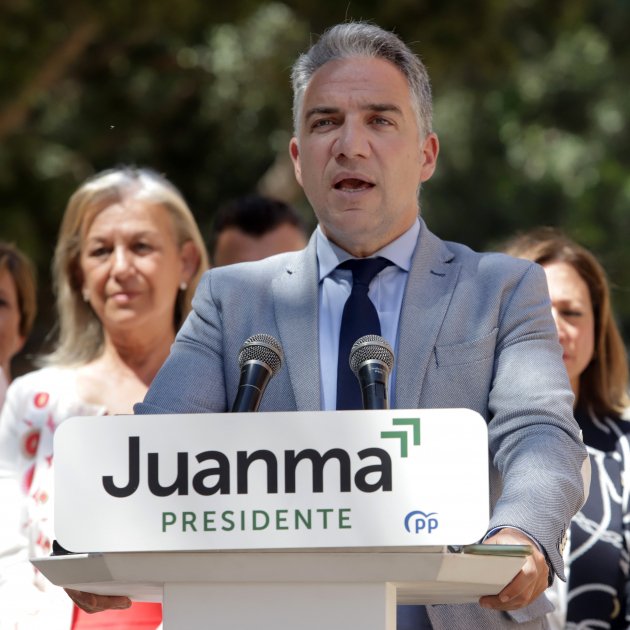A change in the discourse. The general coordinator of Spain's People's Party (PP), and a man close to recently chosen leader Alberto Núñez Feijóo, Elías Bendodo, acknowledged this Monday that Spain "is a plurinational state". This is nothing new if one takes into account that this is the description given by the Spanish Constitution of the territorial organization of the state. But it is a remarkable assessment if one compares the change in the discourse that this expression implies compared to some of the words that the Spanish right have traditionally used, and especially with the language used when the PP had Pablo Casado at the helm. However, Bendodo was forced to add a nuance to his words quickly, clarifying that "'nation' is not the same as 'nationality'".
Bendodo got into even deeper water when he tried to explain how Catalonia fits into this new PP vision: it is not a nation within Spain, but a nationality of the Spanish state. "Like any other autonomous community," he added in an interview with El Mundo, to stave off criticism. A glance at Article 2 of the Spanish Constitution reveals that his statement cannot be faulted. The text, which refers to the "indissoluble unity of the nation" as the "common and indivisible homeland of all Spaniards" also recognizes the right of autonomy "of the nationalities and regions" that are part of it (yes, without indicating which territories are one thing and which might be the other).
In Feijóo's footsteps
This assessment by the general coordinator of the PP is not quite his own invention. During his speech at the Cercle d'Economia business meeting in Barcelona two weeks ago, the new national president of the Spanish conservatives already launched this fresh turn of phrase in Catalonia: "For a nationality like the Catalan one, the best option to preserve its stability and identity is the recovery of its leadership within Spain and its contribution to the vigour of the state and of the EU." A very fine adjustment of the line, but with the difference already detectable. It was Feijóo's first visit to Catalan territory since his election as head of the PP.
Fierce criticism
As expected, this fine-tuning adjustment of the People's Party has been accompanied by a harsh and forceful response from the other parties on the Spanish right. In pre-electoral Andalusia - with autonomous elections just a month away - the far-right Vox candidate Macarena Olona gave a fierce criticism of Bendodo's words on Twitter. "The PP used to buy ideas from the PSOE. Now they buy them from racist separatists," she said. And from Ciudadanos there was a chorus of reproaches as well: party leader Inés Arrimadas vehemently accused the PP coordinator of saying that Spain "is not a nation and that within it there are territories of first and second class". "In the PP they have always acted as if it were like that and now they publicly acknowledge it," she said. Cs' Carlos Carrizosa was even tougher: "Spain is one nation of free and equal citizens, and everything else is a delusion to please the nationalists."
Faced with this response, the general coordinator decided to refine his words. And in fact he did so twice. In an interview with the Antena 3 network, he stated that the "impositions" pursued by the independence movement in linguistic matters (through linguistic immersion) cause "impoverishment", and he defended "pluriculturalism and plurilingualism". He later went on Twitter to amend his statement on plurinationality, explaining that the PP position is "clear", but that it had not been properly explained. "Spain is an indissoluble nation of 17 autonomies with their own identities," he wrote.
